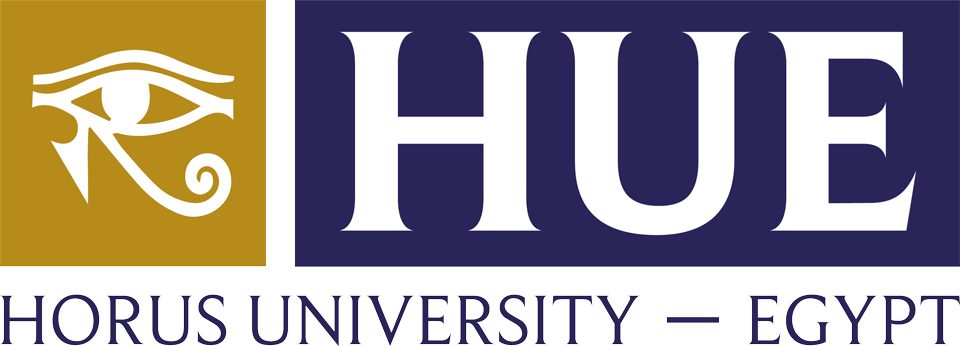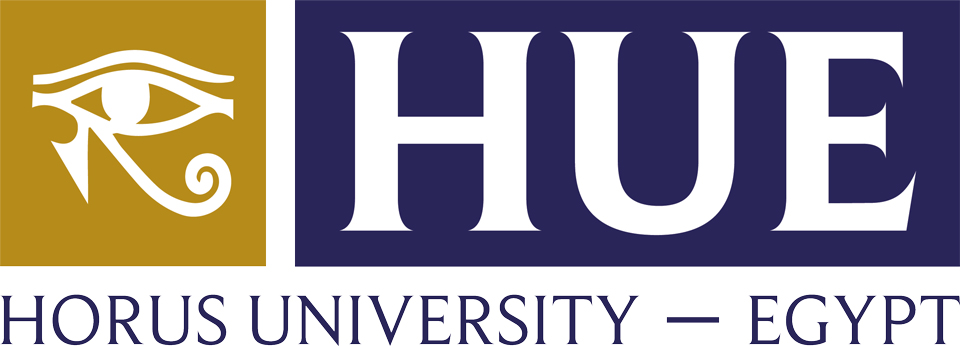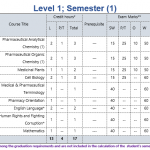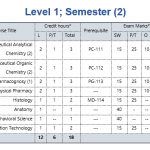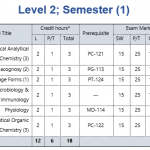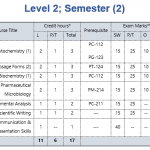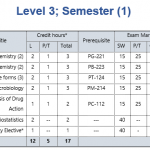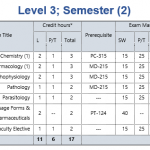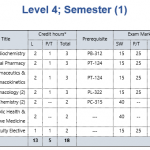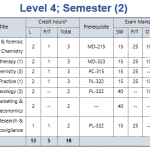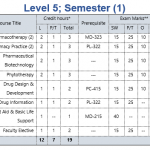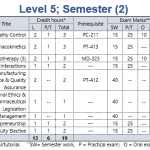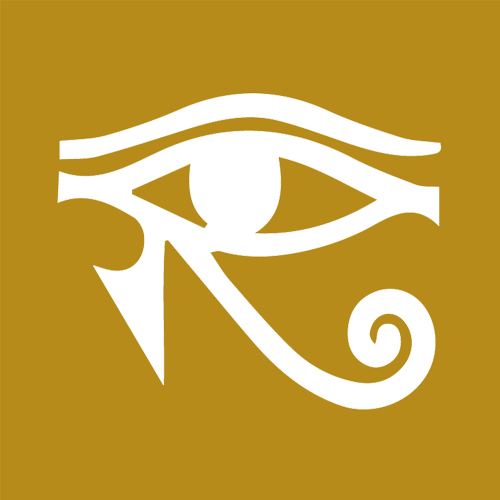Bachelor Degree in Pharmacy (Pharm-D)
1. Scientific Degree
- The Horus university council grants at the request of the faculty council a Bachelor’s degree in Pharmacy (Pharm-D) in accordance with the credit hours system.
- The Bachelor’s degree in Pharmacy (Pharm-D) is the first university degree in the field of pharmacy, which is required to obtain the practice license of the profession in all pharmaceutical fields. It also qualifies for applying to the postgraduate studies in any of the scientific departments in the faculty.
2. System of Study
- The system of study of the bachelor’s degree in Pharmacy (Pharm-D), provided by the faculty, is accomplished through the following regulations of Credit Hour system.
- Duration of study in the program is five academic years (five levels over ten semesters) according to the credit hours’ system and advanced training year in the workplace (5 + 1). In addition to 100 hours in actual field training in private and government pharmacies and hospital pharmacies during the summer holidays for study years after the end of the third level and before starting the advanced training year.
- Credit hour is an educational measuring unit that decides the value of each syllabus compared to other syllabuses and it is equal to one-hour lecture per week in a single semester and at least two practical, laboratory, applied or training hours per week in a single semester.
- The semester’s duration is 15 weeks.
- The academic year falls in two main semesters known as level “level of study”. The study program consists of 10 semesters each one falls into 15 weeks including exams. Each semester is considered a separate level that ends with a final exam. The two semesters are separated with a midyear vacation in January or as shown in the university council annual calendar.
- In limited cases, the faculty council can arrange an intensified summer semester (third) that is 6-8 weeks including exams, on the proposal of the relevant department council and the possibilities and resources of the faculty. The teaching hours, dedicated for each course, are multiplied, considering that the maximum academic load is10 hours.
- The student registers in level 2 if he passes at least 35 credit hours, registers in level 3 if he passes at least 70 credit hours, moves to level 4 if he passes at least 104 credit hours and he is regarded in level 5 if he passes at least 140 credit hours.
3. Language of Study
The English language is the language of study in the faculty of Pharmacy. However, some courses might be studied in the Arabic language in agreement with the teaching and students’ affairs committee and the faculty council.
4. Student Evaluation
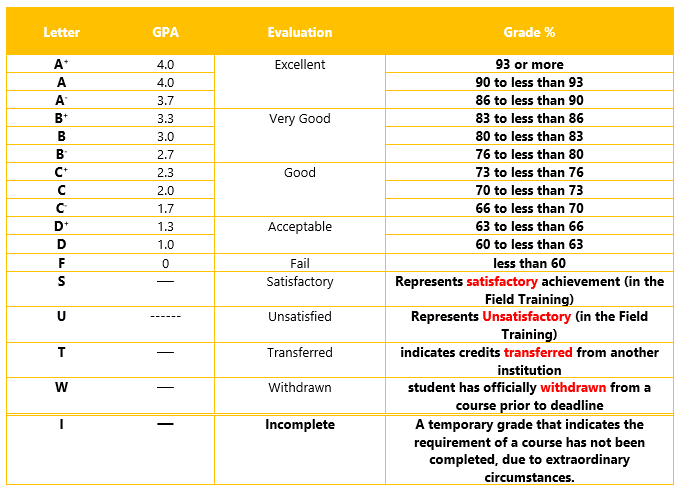
5. Academic program and coursesStudy
- This program consists of 178 credit hours distributed over five levels where each level is divided into two semesters. The following is a statement of the distribution of credit hours in the study plan as well as the level of study and the number of credit hours at each level.
- College elective courses in the last two levels prefer to achieve competencies and skills to help the professional orientation and specialization and to be one of the elective courses in one of the areas of clinical pharmacy.
Distribution of credit Hours
- Mandatory university requirements (3) credit hours.
- Optional university requirements (1) credit hours.
- Mandatory university requirements (166) credit hours.
- Optional faculty requirements (8) credit hours.
Field training
1. Initial Field Training
- The student should complete an initial field training period with a total of 100 actual training hours in private and public pharmacies and hospital pharmacies approved by the faculty council and under supervision of a faculty member and training during the summer holidays for years of study after the end of the third level and before starting in the year of excellence.
- The student is considered to have successfully passed this training and is awarded a grade in the report of the academic supervisors appointed by the College Board and directors of pharmaceutical institutions.
2. Advanced Field Training
- The student should complete the year of excellence ( academic year ) after the completion of the academic years by training in companies and factories:- medical supplies and equipment, cosmetics, food supplements, herbs, medicinal plants, disinfectants, and pesticides- distribution companies and drug stores- local and international drug control centers and bodies ( MOH- CAPA- NODCAR,…WHO, FDA, EMA…etc). Pharmaceutical and medical research centers and clinical studies, media, and pharmaceutical marketing. In addition to private and governmental hospitals and pharmacies. Those who wish to specialize in the academic field can spend a period of training in the faculties of pharmacy or research centers. The training program should include one clinical training course.
- A detailed program of training in the final year is formulated in the form of rotating courses in an appendix attached to the list of the rotational training program in a detailed and systematic manner.
- The college council shall lay the foundation for organizing, monitoring, and evaluating field training for students.
Study Plan
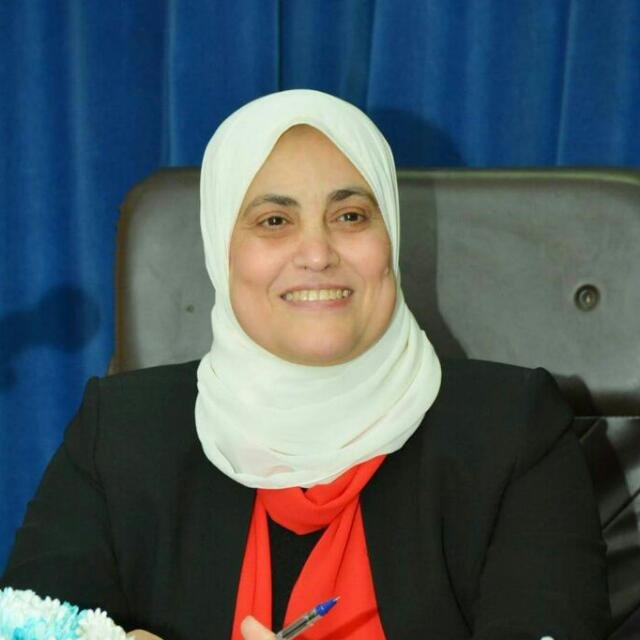
welcome everybody who participates in building a future for our own country to help it take a considerably distinctive place among nations.
